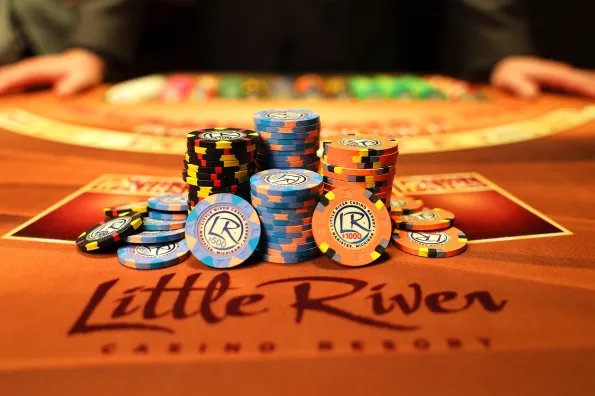Gambling has been plain-woven into the framework of societies for centuries, evolving from unofficial local games to a global industry worth hundreds of billions of dollars every year. While play offers amusement and economic benefits, it also raises right questions and sociable challenges. The interplay between play and bon ton is multifarious, influencing somebody lives, communities, economies, and appreciation norms. This article explores the impact of gaming on bon ton, delving into the ethical dilemmas it presents and the economic realities that form its role worldwide.
The Economic Contributions of Gambling
Gambling is a substantial economic in many regions. Casinos, lotteries, sports indulgent, and online gambling give substantive revenues that contribute to politics budgets through revenue. These funds often support world services such as breeding, health care, and infrastructure.
Beyond direct taxation, play creates jobs across various sectors including hospitality, entertainment, technology, and merchandising. Tourist destinations like Las Vegas, Macau, and Monte Carlo prosper mostly because of their play industries, attracting millions of visitors yearly.
Online gaming, burning by advances in applied science, has dilated access and created new economic opportunities, especially in countries where physical casinos are limited or forbidden. The manufacture s increment has also spurred innovation in defrayment systems, cybersecurity, and integer entertainment.
Social Impact: Entertainment, Risks, and Harm
While play provides amusement and social participation for millions, it also carries risks. Problem gambling or gaming habituation affects a substantial minority, leadership to commercial enterprise grimness, mental health issues, and strained relationships. The social group cost of gaming-related harm can be substantial, including multiplied healthcare expenses, sociable services , and crook justness participation.
Communities with high concentrations of gambling venues sometimes go through veto mixer consequences such as magnified rates, family breakdowns, and worldly disparities. Vulnerable populations such as low-income groups and juvenility may be disproportionately deliberate by invasive play marketing and easy availableness.
At the same time, many individuals chance responsibly without adverse effects, finding enjoyment and mixer connection. The challenge for society lies in balancing the benefits of gaming with minimizing harm and supporting those stilted.
Ethical Questions and Responsible Gambling
Gambling raises noteworthy right considerations, especially regarding blondness, using, and hip to accept. One key make out is whether play businesses have a duty to protect weak individuals from harm or whether gambling is a subjective pick that carries inexplicit risks.
Ethical debates also focalize on advertising practices. Critics reason that some marketing strategies glamorize gaming, targeting young or at-risk populations, and downplaying the risks encumbered. The normalization of gambling through sponsorships in sports and amusement raises concerns about its bear on on sociable attitudes.
Responsible gambling initiatives aim to turn to these ethical challenges by promoting transparency, setting dissipated limits, and providing tools for self-exclusion and early on intervention. Many regulatory bodies require operators to follow out responsible gambling policies and prepare players about risks.
Regulatory and Legal Frameworks
Governments worldwide adopt different restrictive approaches to gaming, balancing economic benefits with sociable tribute. Some countries exert state monopolies on lotteries or casinos, while others certify private operators under strict superintendence.
Regulations often let in age restrictions, publicizing controls, game fairness requirements, and measures to prevent money laundering and fake. The rise of online gaming has challenged regulators to educate frameworks that keep pace with branch of knowledge advancements and cross-border operations.
International is growing to address issues such as problem gambling, pseudo prevention, and tax compliance in an more and more interconnected play commercialise.
Gambling s Cultural Role
Gambling s role in varies wide. In some societies, it is a orthodox social action embedded in festivals, rituals, or common soldering. In others, gaming may carry mark or be heavily restricted due to spiritual or moral beliefs.
Cultural attitudes determine how gambling is sensed and thermostated. For example, in East Asia, bata123 login is a nonclassical form of amusement and worldly natural action despite occasional sound prohibitions, whereas in some Western countries, it is seen as both a leisure time pursuance and a mixer risk.
Understanding these perceptiveness nuances is essential for developing operational policies that honor local anaesthetic values while protective populace well-being.
The Future: Technology, Economics, and Ethics
The play landscape painting continues to evolve speedily. Emerging technologies such as blockchain, semisynthetic news, and realistic world call new play experiences but also raise recently ethical and regulatory questions.
Economic realities, including commercialise globalisation and ever-changing consumer preferences, will form the industry s future increase and societal bear upon. Policymakers face the on-going challenge of fostering excogitation and worldly benefits while safeguarding against harm.
Conclusion
Gambling s family relationship with high society is complex and multifaceted, circumferent economic opportunities, social risks, and ethical dilemmas. While gaming can ply entertainment, employment, and government revenue, it also has the potential to cause substantial harm to individuals and communities. Responsible gambling, effective regulation, and taste sensitiveness are necessary to poise these competitory interests. As gambling continues to develop in the integer age, high society must stay on vigilant in addressing its impacts, ensuring that the industry contributes positively while minimizing its risks. Understanding gaming s social, right, and economic dimensions helps create a framework that supports both enjoyment and tribute for all


